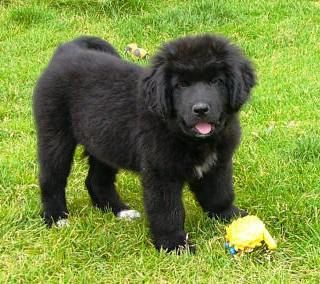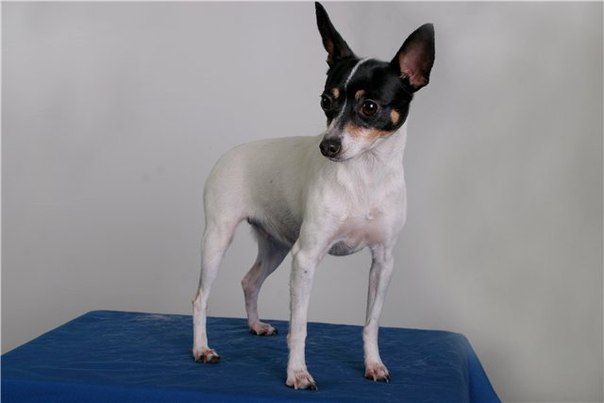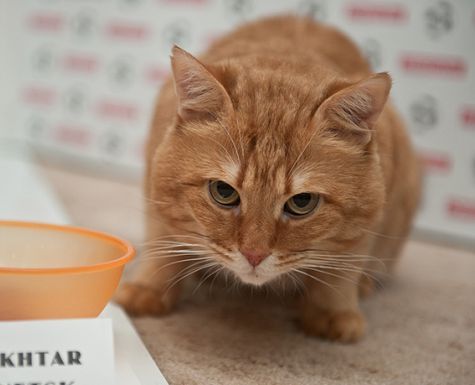How to care for a puppy
Of all the animals that man has domesticated, only one has become his true friend - the dog. No pet can boast as many breed differences as dogs. There are currently more than 400 dog breeds around the world.
The friendship between man and dog has its roots in the distant past.
The dog knows how to love devotedly, adapts well to different conditions and learns lessons. The man accepted the dog into the circle of his family, and she perceives this family as her pack, where the owner is the leader.
The dog still serves man: as a hunting assistant, watchman, shepherd, bloodhound and guide for the blind, but most importantly, it has become his companion and friend.
For three and a half years now, our family’s favorite dog, Taiga, has been living with us. In the spring of 2008, Taiga was expecting offspring. Friends asked us to leave the puppy, who told us that they would take him a month after birth. We decided to check, if the puppy is separated from its mother at one month of age, whether it will be able to live independently a month after birth. Therefore, in order to answer the question posed, we carried out a research work, “My puppy: the first month of life.”
The growth and development of puppies depends not only on their age, but also on hereditary inclinations, the number of puppies in litters and conditions of keeping and feeding.
Puppies are born helpless, with their eyes and ear canals closed, not adapted to independent life. They are under constant maternal supervision and care and are only able to crawl a little and suck mother's milk. The eyes open from the 8th birthday, the ear canals from the 5th day. In the 1st-3rd weeks of life, puppies experience a large daily increase in body weight, including the brain. For puppies in the first 2 weeks of life, the only food is mother's milk, which contains everything necessary to ensure the normal functioning of the babies' bodies. Puppies begin feeding at 2 weeks of age. Puppies learn to feed easily; the need for food and water is the most important necessity. Puppies need to be fed and watered promptly. Since puppies have very small stomachs, they need to be fed up to 5-6 times a day at first. You can feed with milk, liquid milk porridge, cottage cheese, white bread, finely scraped meat. You should always leave clean water for puppies.
If the dog has a lot of milk, there is no need to wean the puppies before 5-6 weeks, or until they begin to climb into their mother’s bowl, showing that they can eat something more substantial than milk.
From the 15-18th day of life, puppies hear and see sufficiently. Their first teeth erupt at 2-3 weeks. By one month, the puppy already has all the baby front teeth, and the permanent ones appear to replace them at 4-6 months. By 18-21 days, puppies are able to stand and walk, and then run. They move away from their mother and actively get acquainted with the environment, enriching their life experience.
It should be noted that a dog perceives the world around him completely differently from a human. For her, it consists, first of all, of many smells, most of which we cannot even imagine. With the help of scent, the dog extracts from the environment important information for it: who he met - friend or enemy, whether something lying on the ground is edible. But it even more sensitively captures and remembers the individual odors of a person. Dogs not only have a better sense of smell than ours, but also much sharper hearing. The dog easily learns to identify sounds that are important and interesting to it. Compared to the sense of smell and hearing, vision in dogs is less developed. Dogs see poorly, especially at dusk.
In the first weeks of life, puppies sleep a lot. They eat, play a little, and go back to sleep. This is a completely normal state for babies - they get tired quickly. Gradually, the intervals between sleep and wakefulness increase, and the puppies begin to play and run a lot. From approximately 3 weeks of age, the movements of puppies improve significantly and become more varied. A voice appears, which gradually changes in the strength of sounds and variety of tones.
From about 20 days of age, puppies recognize their caregiver and show joy when he comes and communicates with him. If in the 3-4th week of life the puppy is usually wary of meeting unfamiliar people, animals, objects, then at 1.5-2 months he shows interest in unfamiliar external stimuli, sniffs, licks, and tries to explore them. During this period of life, the puppy's body weight growth rate slows down. By this time, the puppies are already living without their mother and eating a variety of food.
The physical capabilities and behavioral characteristics of a puppy depend primarily on its age. At the age of 1-3 months, the puppy is accustomed to the owner and his family members, a place, cleaning and washing, a nickname, a leash, walks, simple commands, and games. From the first day of meeting a puppy, it is necessary to establish and maintain the right relationship with him, achieve obedience, devotion, and, in the future, love.
Puppies are weaned from their mother at the age of 30 - 45 days. Dog breeders recommend adopting a puppy no earlier than 30 days of age, preferably 40 to 45 days. The latter is preferable: the puppies went through the best “education school” under the supervision of their mother.
Thus, based on the above, we can conclude that it is not recommended to take the puppy away from its mother before 30 days of age, since the puppy is still weak and needs the care of its mother.





No comments here yet.